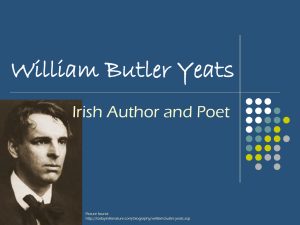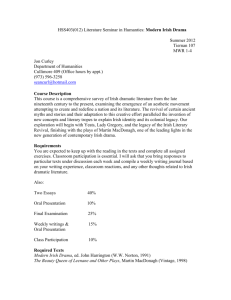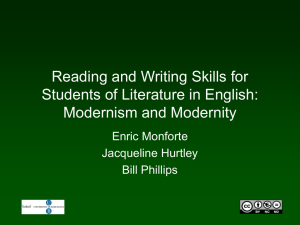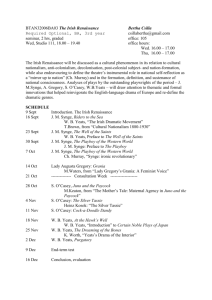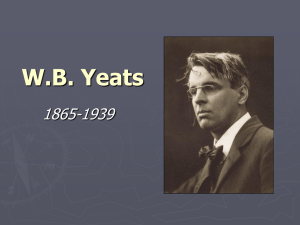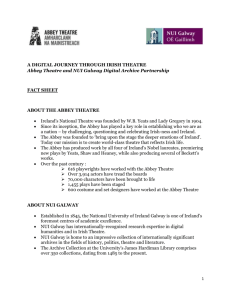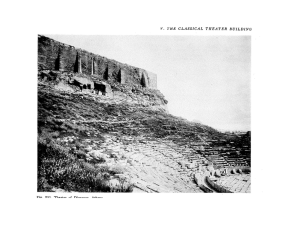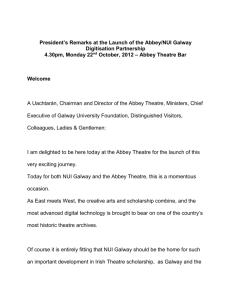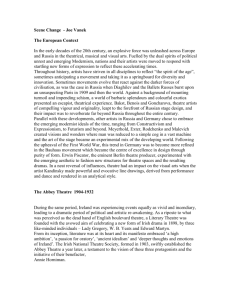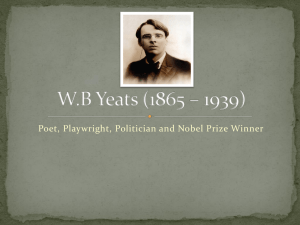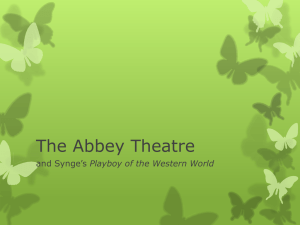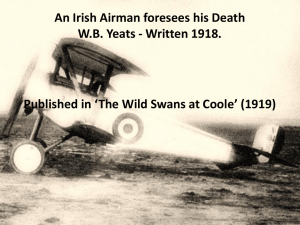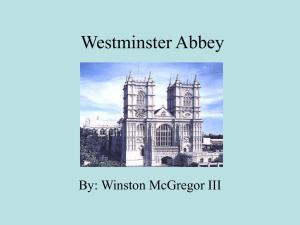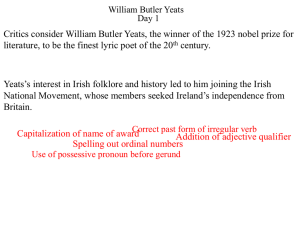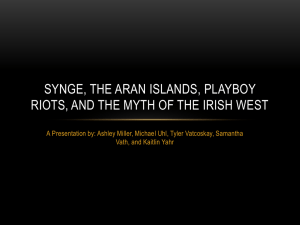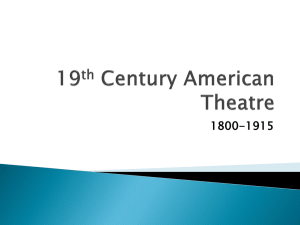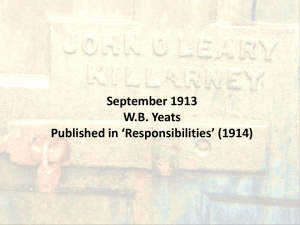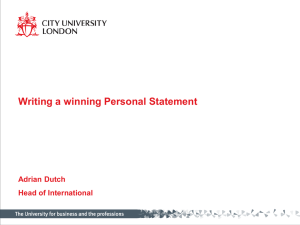the abbey theatre
advertisement
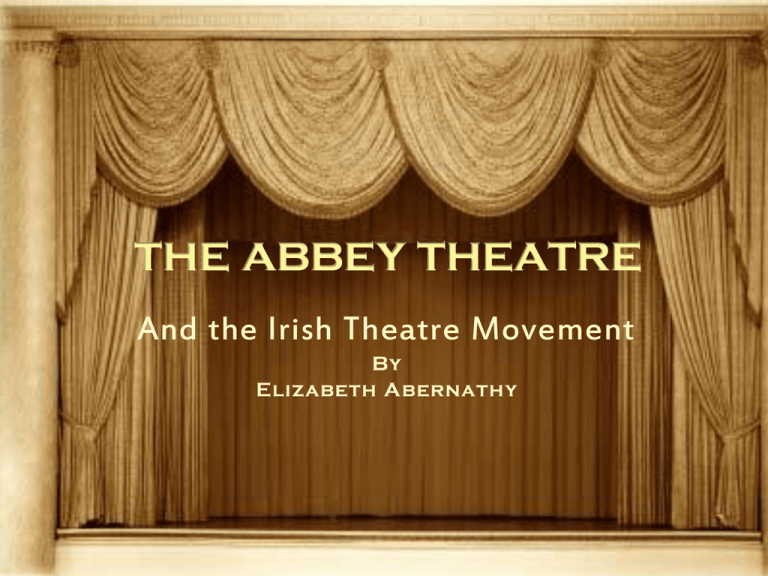
And the Irish Theatre Movement By Elizabeth Abernathy Establish in 1904 in Dublin It grew out of the Irish Literary Theatre founded in 1899 by William Butler Yeats, and Isabella Augusta, Lady Gregory. The Abbey opened up in December of 1904 with a bill of plays by Yeats, Lady Gregory, and John Millington Synge 1st State-subsidized theatre in the English-speaking world. Closely associated with the writers of the Celtic Revival I mportant William Butler Yeats – co Figures in Abbey Theatre William Butler Yeats director Lady Gregory – co director Edward Martyn William and Frank Fay (formed W. G. Fay’s Irish National Dramatic Company) Annie Elizabeth Fredericka Horniman – funding John Millington Synge - co director Jan 26. 1907 staging of Synge’s satire The Playboy of the Western World caused a riot over resentment of the portrayal of the Irish peasantry. May 7, 1910 when all the other theatres in the city were closed in respect for the death of King Edward VII, the Abbey was kept open. 1926 Sean O’Casey’s The Plough and the Stars caused riots similar to the Playboy Riots. Yeats Lady Gregory Moore Martyn Padraic Colum George Bernard Shaw Oliver St. John Gogarty Wilfrid Blunt F. R. Higgins Thomas MacDonagh (one of the leaders of the Easter Rising in 1916) Lord Dunsany T. C. Murray Lennox Robinson Sean O’ Casey Famous Writers Synge, as a key member of the Abbey Theatre greatly aided in its success. The Nationalist Movement Used theatre to establish strong sense of national identity The Irish Literary Movement Aimed to overcome the feeling of cultural inferiority by advocating a return to Irish Mythologies and Legends The Socialist Movement Aims of improving status of workers in society, mainly between 1912-1916 The Suffragist Movement Status of women, mostly in years 1912-1915, specifically calling for women’s right to vote. The Abbey provided an output for the Nationalist movement in artistic form. Through the Abbey Theatre and other theatres, Irish culture began to surface and reestablish itself. http://www.britannica.com/EBchecked/topic/561/Abb ey-Theatre http://www.newworldencyclopedia.org/entry/Abbey_ Theatre http://www.jstor.org/pss/25489634 http://www.novelguide.com/a/discover/eich_01/eich_ 01_00229.html http://www.nationalarchives.ie/contactus/news/imag es/2008/MayAbbeyTheatre.jpg
